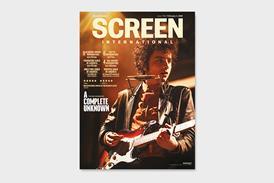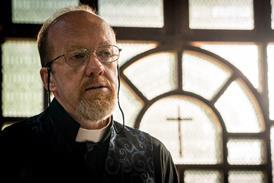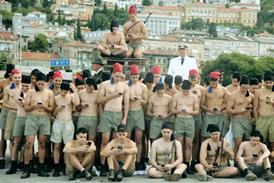Tarak Ben Ammar and Italian Mediaset own 25 percent stakes in liberal pan-Maghreb broadcaster Nessma founded in 2007 by Tunisian Karoui Brothers.
Pan-Maghreb Tunisian broadcaster Nessma said on Tuesday it had cancelled a second scheduled broadcast of Marjan Satrapi’s Persepolis after its initial airing prompted an attack on the station over the weekend.
“The film won’t be aired again,” Nessma journalist Jamel Arfaoui, speaking on behalf of the broadcaster, told ScreenDaily. “It’s too complicated and our lives and those of our families are being threatened. Some of us cannot even move about freely – we are being followed.”
French-Iranian animation Persepolis, based on Satrapi’s autobiographical novel set against the last days of the Shah and Iran’s 1979 Islamic Revolution, aired on Nessma on Friday and was followed by a televised debate on religious fundamentalism.
Some 280 people tried to storm the station and set fire to it on Sunday, protesting about a scene in the film where the young female protagonist has an argument with God. In Islam it is forbidden to show an image of God.
They were also angry that the feature-length cartoon had been aired on Friday, a holy day in the Muslim world.
According to local media reports, the demonstrators belonged to the country’s minority Salafist group, known for their strict and literal interpretation of the Koran.
In an official statement issued on Monday, Nessma noted that “Persepolis has already been screened in Tunisia during the Cinematographic Days of Carthage and then in the cinemas of Tunis. It also won a prize at Cannes.”
Sunday’s protests came just two weeks before Tunisia’s first democratic elections in 25 years, following the ousting of former dictator Zine El Abidine Ben Ali last January. The Oct 23 vote is for an assembly which will write a new constitution for the country.
According to recent polls, formerly banned Islamist party Ennahda is set to take 30 percent of the vote. The party has sought to distance itself from the Salafist minority, condemning Sunday’s protest and describing it an “isolated” incident.
In a similar incident in June, a gang of men attacked a screening of Nadia el-Fani’s documentary about religious fundamentalism Ni Allah, Ni Maitre (Neither God, Nor Master). The director, who also received death threats, later changed the title to Laïcité, inch’Allah, which translates roughly as “let’s hope for secularism”.
Sunday’s incident prompted a counter-demonstration in support of the station but mainstream La Presse daily newspaper lamented in an editorial that the incident had distracted the electorate away from the real and pressing issues of democracy and that the debate might push some conservative Tunisians towards voting Ennahda.
A cartoon on its front page showed a hand arked “Nessma” pushing a sacrificial lamb marked “the voter” into the arms of Ennahda party leader Rached Ghannouchi, saying “Thank you Nessma for this wonderful present just before Eid.”
Nessma, which also airs via satellite to Algeria, Morocco, Libya and Mauretania, was launched in 2007 by Nabil and Ghazi Karoui. Tarak Ben Ammar’s Quinta Communications and Silvio Berlusconi’s Mediaset each acquired a 25% stake in the station in May 2008, leaving the Karoui Brothers with a 50% share.
Known for its liberal, generalist content, the Tunis and Paris-based station broadcasts shows such as Star Academy Maghreb as well as the popular sitcom Nsibti Laaziza (My Darling Grandmother).














![[L-R clockwise] 'Anora', 'A Complete Unknown', 'Conclave', 'The Apprentice'](https://d1nslcd7m2225b.cloudfront.net/Pictures/274x183/6/5/3/1442653_casting_918941.jpg)

!["Within two weeks [of moving to Northern Ireland] I met Kneecap, the biggest caners in Belfast," says Peppiatt](https://d1nslcd7m2225b.cloudfront.net/Pictures/274x183/5/3/9/1442539_kneecap1creditpeadarogoill_298103.jpg)




No comments yet